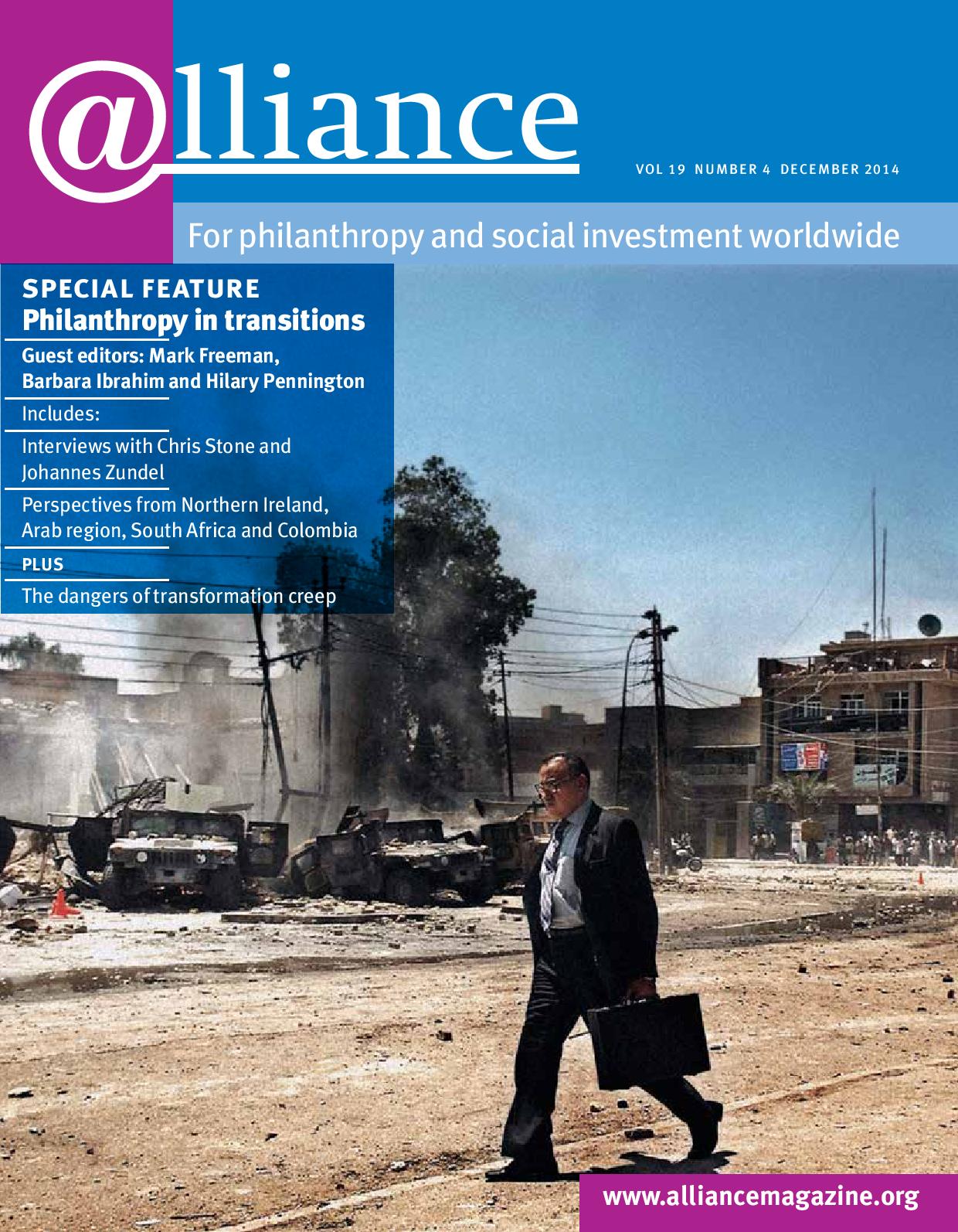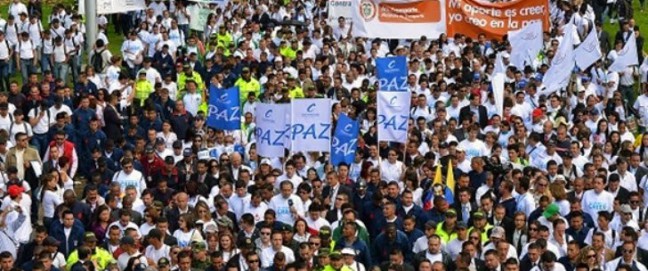Has private philanthropy mainly been on the ‘right side of history’ in South Africa or other transitions you have been part of, taking smart risks at the critical junctures?
In the main, philanthropy in South Africa has supported good causes, which have sought to build democracy. A pivotal time for giving in South Africa was during the government’s denial of HIV/Aids, when external support was crucial. A key negative was the lack of rules and accountability, which characterized private philanthropy during the years of apartheid. While the secrecy was necessary to preserve the lives of individuals and ensure that their organizations could survive unscathed, it also produced a lack of accountability and the beginnings of corruption. During the transition, many organizations were unable to understand why donors who had previously turned a blind eye to corruption were no longer willing to do so. Governance issues remain a challenge for funding in South Africa.
Shelagh Gastrow, executive director of Inyathelo, the South African Institute for Advancement, has written about the new vistas being opened in the creation of a healthy philanthropic sector in South Africa. She has noted that philanthropists can take risks, as they are not answerable to the voter or the shareholder. They can invest in cutting-edge initiatives or support new discoveries that push the boundaries of knowledge. New ideas generally develop on the fringe – and that, in my view, is often where the ‘right side of history’ is located, both before and during transitions. And the funds for their issues, whether women’s rights or international justice, come not from government or the private sector but from philanthropy – from people, rich and poor, who are passionate about the issues. Funding for such issues is not charitable, it’s strategic; it is about changing society for the good, about social justice.
According to Gastrow, universities are also recipients of philanthropic money and are often the anchor institutions that sow the seeds of change. In addition, philanthropy need not demand the immediate results expected by business, but can take its time to measure impact.
What distinguishes the actions of private philanthropy from aid agencies in South Africa’s and Sierra Leone’s transitions? Does philanthropy have a unique role to play, despite its smaller resources?
Aid agencies are compelled to support the government’s national agenda. In South Africa, providing support to treat the AIDS pandemic was very difficult in the face of the government’s AIDS denial. It was only much later that the situation eased for the aid agencies.
Philanthropists, by contrast, have no such restrictions, which makes it possible for them to support civil society organizations that take on unpopular issues against the state – an important issue since 2009, as the state has attempted to close down spaces for building an open society. As civil society becomes more critical of the state, private philanthropic support to civil society and the media becomes increasingly important.
One of the challenges for civil society organizations in South Africa has been that many of them who receive their funding directly from government departments take on the role of the state. This makes them vulnerable and restricts their ability to criticize the state and failing policies.
In Sierra Leone, it is mainly aid agencies that have made a difference – both during the transition and today. While there have been private philanthropists, they have mainly spent their funds on causes such as building houses for amputees, addressing the plight of the war wounded, dealing with child soldiers and reintegration, and on support to organizations building democracy. In recent years philanthropy has focused on jobs for young people and on assisting local chiefs in dealing with the extractive industries. In the main, on causes that would be described as being on the right side of history.
Can you give a couple of examples of something that private philanthropy has contributed to these transitions, and what made the interventions work?
In South Africa, one positive example of private philanthropy has been the contribution made to voter education. It was important that South Africans, particularly in rural areas, learned how to vote.
Another example is support around the constitution immediately after the transition. CSOs and the faith communities in South Africa contributed to the drafting of the South African Constitution, which was approved in December 1996 and took effect in February 1997, and is widely regarded as one of the most advanced and progressive human rights-based constitutions in the world. CSOs supported by a range of private and public donors lobbied strongly for the inclusion of socio-economic rights, making them actionable in law. CSOs have maintained their vigilance in promoting and protecting the principles and rights enshrined in the constitution. These interventions worked because they were appropriate to what South Africa needed at the time.
In Sierra Leone, Rocco Falconer, founder of Planting Promise, an agricultural and educational charity, wrote in a global philanthropy blog in November 2013 about his early focus on building an educational charity in Sierra Leone. He felt that the only way for people to escape the poverty trap was to give them the capacity to change their own lives and the inspiration to do it.
Philanthropists need to ensure that accountability and good governance are a two-way process. They must be educated about the power constructs within the societies they fund, ensuring that their actions promote equality.
‘When we talk about poverty, we need to also talk about the poverty of aspiration. Planting Promise’s belief is that we need to invest in people, and help them realize anything is possible.’ The school he built in Freetown’s poorest area was a start. Falconer said that the test of success for Planting Promise would not be the number of school places that it could offer, or even the quality of the education in the schools, but rather its sustainability. His questions were: could the charity survive? Could it give confidence? Could it inspire with its product and its message? He concluded that the best stories about Planting Promise changing the life of African people are stories illustrating that programmes like this, when judiciously applied and effectively managed, do more than give a service or a product to an individual.
George Soros also became involved in Sierra Leone and indicated that he wanted to assist in building a free and open society. While Sierra Leone is a country with enormous mineral wealth, hardly any of it benefits its citizens. Soros has been involved in initiatives to assist this previously war-torn West African nation in the arena of ‘extractive mineral industry transparency policy formulation’ and in ‘the development of civil societies’. He maintains that natural resources belong to the people but rulers often use them to benefit themselves, creating what is known today as ‘the resource curse’. Soros’s funding assisted with the restoration of the website of Sierra Leone’s Truth and Reconciliation Commission and it is now live and accessible to all.
Can you also give two negatives examples of philanthropic interventions in transitions. What made these problematic?
South Africa and many other countries in the region have accessed private philanthropy through religious organizations and charities. Many of these are very conservative, which has produced many instances of support to initiatives which, for example, discriminate against sexual minorities. This is apparent in initiatives that seek to close down constitutional spaces in respect of reproductive rights and the clause guaranteeing freedoms to members of the LGBTI community.
What core values should guide private foundations wishing to engage in transition contexts where there is a chance to put in place the building blocks for sustainable peace and democracy?
The shift from traditional top-down philanthropy (which has typically prevailed at the start of democratic and post-conflict transitions) to locally driven and community-based models has incorporated new patterns of giving which focus on the lives of the poor.
In addition, in-depth research and understanding of context are needed if philanthropy is to realize its clearly stated goals in pursuit of the public good. Philanthropists need to ensure that accountability and good governance are a two-way process. They must be educated about the power constructs within the societies they fund, ensuring that their actions promote equality.
Core funding – so fundamental in times of transition – remains another issue that needs addressing. Foundations should have a long-term vision, committing themselves to the sustainability of the projects they fund rather than making short-term, one-off donations. Their practices and operations should be fully transparent. It is absolutely critical that philanthropic funding can be tracked. Philanthropy should also promote inclusiveness and reflect diversity in both staff and board.
Yasmin Sooka is director of the Foundation for Human Rights in South Africa. Email ysooka@fhr.org.za







Comments (1)
how can ysooka org help my young organization in Sierra Leone to grow?